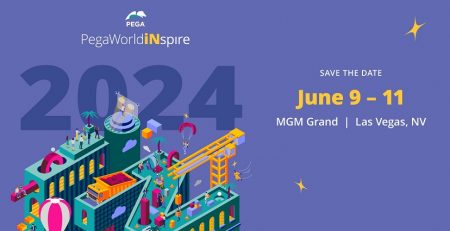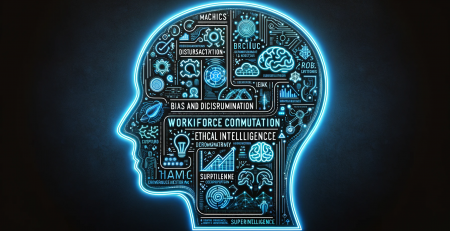AI Disruption: The Extinction or Evolution for Your Career?
AI is rapidly reshaping our world and transforming the global economy. The IMF recently found that AI exposes around 40% of global workers to potential job disruption. Advanced economies face a higher risk; approximately 60% of knowledge workers’ roles are susceptible to AI’s impact.
However, paradoxically, developed nations are better positioned to harness AI’s benefits. The IMF study indicated that while artificial intelligence (AI) could have a negative impact on up to half of the jobs in advanced economies, the remaining jobs in these regions could see improved productivity through the adoption of AI technologies.
In emerging markets, the proportion of negatively affected jobs decreases to 40%, dropping to 26% in low-income countries with fewer knowledge workers. As organisations worldwide integrate artificial intelligence (AI), replacing some jobs and creating new ones, it is essential to prepare and plan for these changes thoughtfully and responsibly based on each country’s distinct economic conditions.
AI’s Impact on Careers: Replacement or Accelerant?
Right now, we are at a crossroads. Organisations and individuals have a unique opportunity in front of them. Whether they want to capitalise on or be fearful of AI is entirely up to them. AI must be viewed from a nuanced perspective. After all, we have yet to know the full extent of its impact.
Research indicates that AI advances are encroaching on “knowledge worker” roles. For instance, knowledge worker roles like lawyers were once considered safe from disruption. However, generative AI can now be deployed to revolutionise the legal sector.
While it is understandable that AI’s growing intelligence can fuel anxieties about job disruptions, it is crucial to recognise that those concerns are misplaced. The key is to learn to work with AI, not against it. Rather than rendering professions obsolete, new technologies spur innovation and adaptation, and greater human-machine augmentation has led to greater productivity and business output.
Three Strategies to Succeed in the Age of AI
People can take three key actions to ensure they remain both valuable and employable in the age of AI.
1. Leverage AI as a Collaborative Partner
By leveraging AI, workers can produce far greater quality work in half the time. AI can be used as a partner for research and brainstorming, validating AI’s output against authoritative sources and our subject matter expertise. But people must remember to apply critical thinking to scrutinise, refine, and add value to AI’s contributions.
People should collaborate with AI, providing it context and guidance while leveraging its information gathering and analysis capabilities. Workers should treat AI as a powerful tool to augment their abilities, not as a replacement for human decision-making. This approach will enable people to harness the full potential of AI while maintaining control and accountability for its outputs.
2. Become an Expert on AI’s Current Capabilities and Limitations
Develop “AI literacy” to thrive in your role. Understanding precisely which tasks AI excels at and where it struggles is key. Offload appropriate work to an AI tool while honing skills machines cannot replicate.
For example, if you write an article, use AI for creativity and suggestions but control the narrative and delivery with your expertise.
While AI boosts productivity, task execution, content creation, and creativity, it cannot match human judgement or nuanced communication.
3. Commit to Lifelong Learning and Upskilling
As these systems progress, new AI-focused jobs will emerge, and maintaining employability will require a mindset of reinvention. Embrace lifelong learning and continuous upskilling to ensure that you work in tandem with evolving AI systems while avoiding being replaced by them. By focusing on capabilities that differentiate humans from machines, we can use AI as a force multiplier to accelerate career advancement. AI can analyse medical images, test results, and patient data to aid diagnosis.
However, selecting the appropriate treatment plan will depend on the human doctor’s ability to factor in the patient’s circumstances. Similarly, AI would be a powerful tool for delivering interactive learning experiences in the education sector. But again, understanding a student’s unique learning needs would always require human emotional acuity.
Conclusion
In the face of AI’s rapid advancement, the question isn’t about career extinction but evolution. The IMF’s findings suggest a significant shift, with advanced economies at the forefront of both disruption and opportunity through AI integration. This dynamic underscores the urgent need for tailored strategies in adopting AI, whilst taking into account the diverse economic conditions across the globe. As organizations and individuals stand at this pivotal juncture, the choice is clear: to either embrace the transformative potential of AI or to remain on the side lines of technological progress.
Embracing AI as a partner, understanding its capabilities, and committing to lifelong learning are key to thriving in this new era. These approaches not only prepare us for the immediate shifts AI brings but also position us to shape our careers proactively in an AI-enhanced future. The integration of AI in our workplaces doesn’t spell the end for human roles; rather, it paves the way for a new chapter of human-machine collaboration, offering opportunities for innovation, productivity, and personal growth. In navigating this landscape, the message is clear: evolve with AI and unlock the potential to redefine our careers and industries or risk becoming obsolete.
Check out my other blogs – Should we fear an attack of the AI clones? – Kieran Gilmurray











Leave a Reply